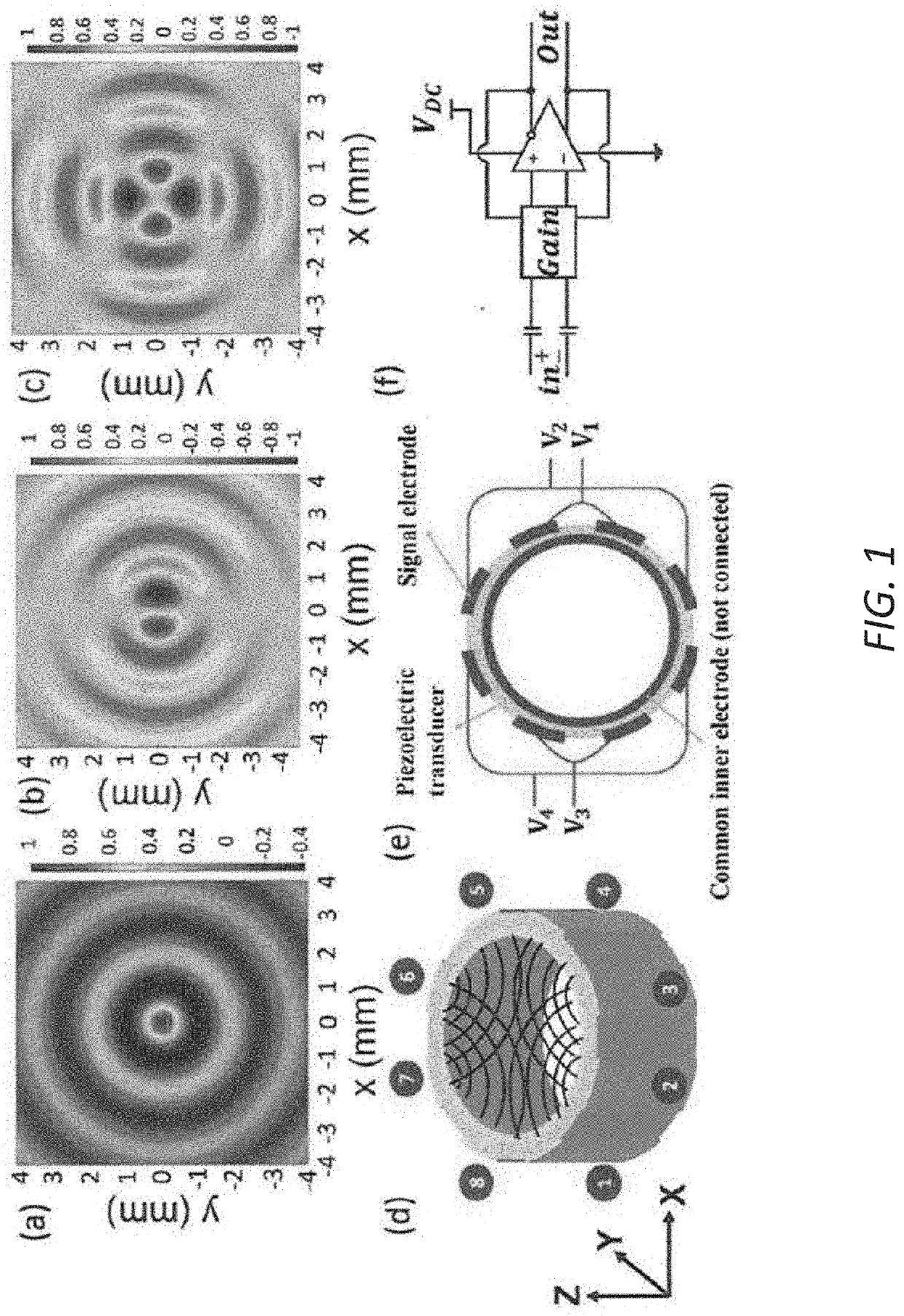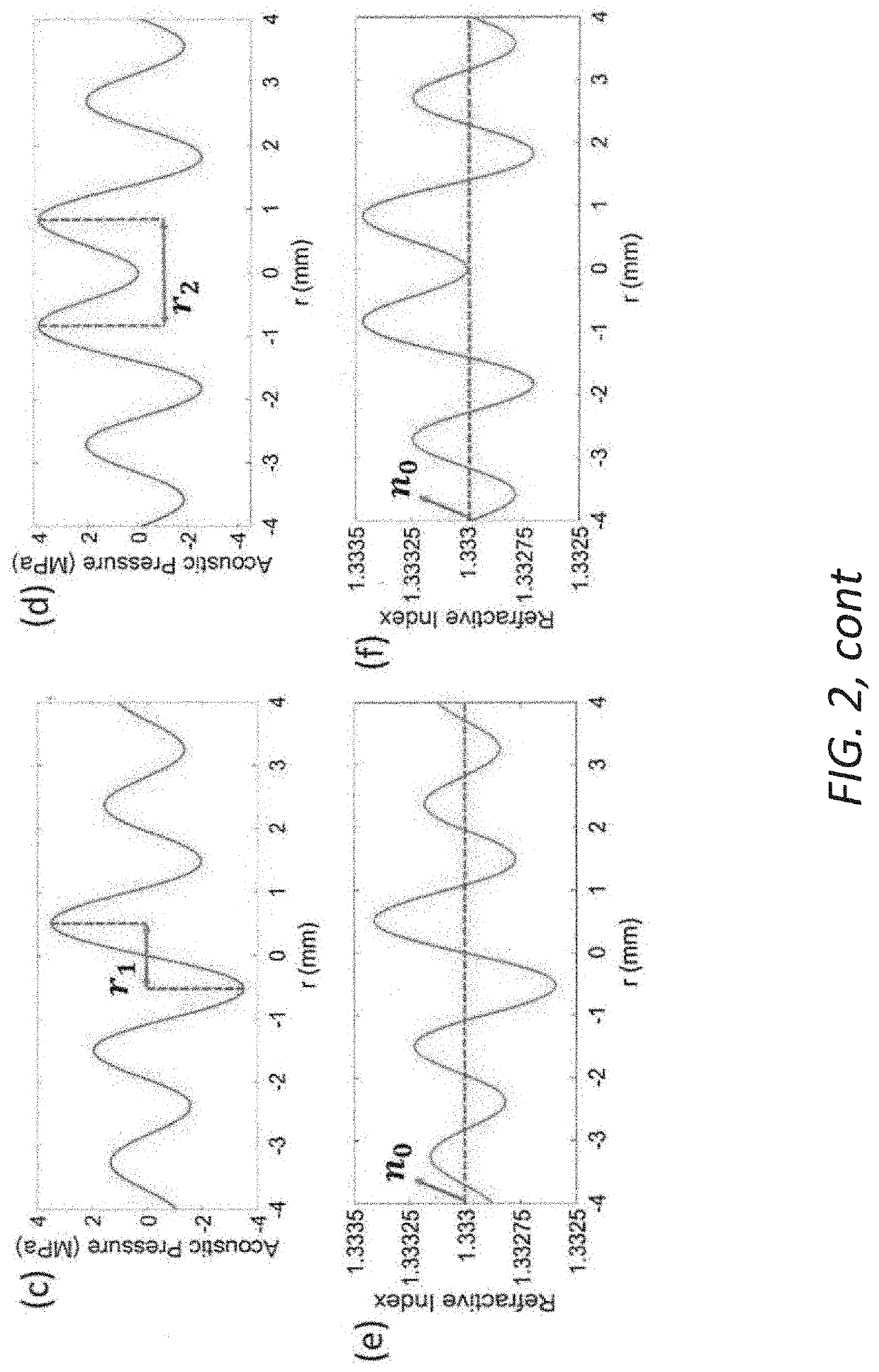Reconfigurable ultrasonically sculpted optical beam paths
- Summary
- Abstract
- Description
- Claims
- Application Information
AI Technical Summary
Benefits of technology
Problems solved by technology
Method used
Image
Examples
Embodiment Construction
[0016]Creating multiple patterns of pressure interference with a multi-segment ultrasonic transducer array.
[0017]Cylindrical transducers have become an appealing option due to in-phase pressure adding at the center, whose peak can potentially be orders of magnitude larger than one produced by a planar phased array. The propagation of acoustic waves in a cylindrical cavity can be described by solving the wave equation using the separation of variables method subjected to the rigid wall boundary condition in the polar coordinate system. The general acoustic cavity pressure can be written as:
pm,n(r,φ,z)=Jm(krm,nr)·Φm(φ)·eikzz (1)
where m is the azimuthal mode number.
[0018]For each value of m, there will be a sequence of solutions which are characterized as radial modes. The corresponding mode numbers have been denoted by n herein. The pressure variation along the axial direction can be considered negligible because the wave source propagation direction (i.e., the radial direction) is n...
PUM
 Login to view more
Login to view more Abstract
Description
Claims
Application Information
 Login to view more
Login to view more - R&D Engineer
- R&D Manager
- IP Professional
- Industry Leading Data Capabilities
- Powerful AI technology
- Patent DNA Extraction
Browse by: Latest US Patents, China's latest patents, Technical Efficacy Thesaurus, Application Domain, Technology Topic.
© 2024 PatSnap. All rights reserved.Legal|Privacy policy|Modern Slavery Act Transparency Statement|Sitemap



